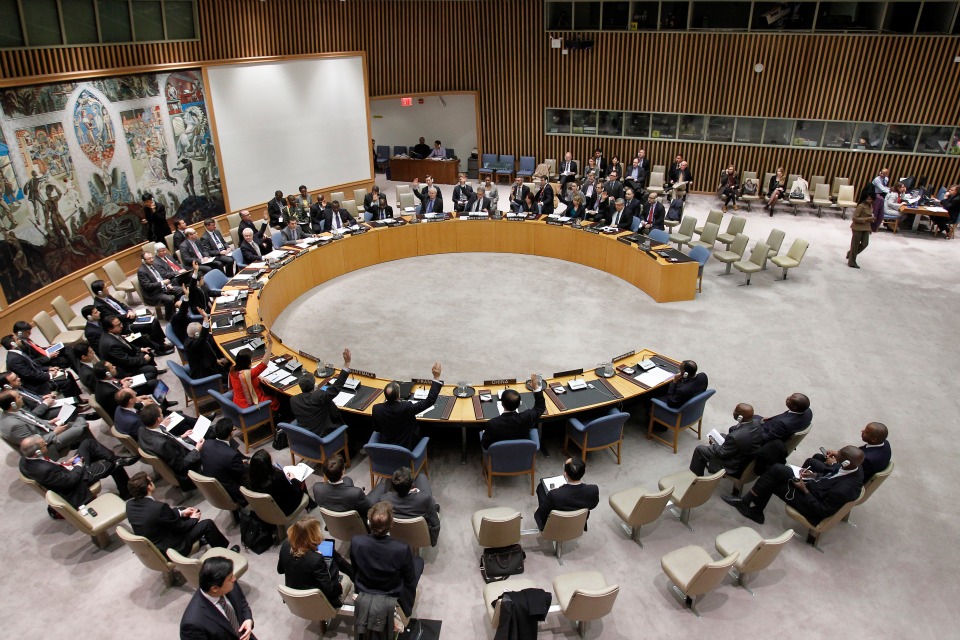'We can meet our shared vision of a stable, inclusive & prosperous Afghanistan'
Statement by Ambassador Lyall Grant, of the UK Mission to the UN, to the UN Security Council Open Debate on Afghanistan/UNAMA - 20 September

Thank you Mr President,
I would like to thank the Secretary-General for his report, the Special Representative Mr. Jan Kubis for his briefing, and Ambassador Tanin for his positive remarks this morning.
Let me begin by condemning the recent attacks in Afghanistan. Over recent months we have seen a spike in civilian deaths and injuries, including women and children. As Mr Kubis noted, the killing of Lieutenant Nigara, one of Afghanistan’s senior policewomen, is the latest tragedy. These attacks are reprehensible and are a reminder of the significant challenge to building peace in Afghanistan.
Mr President,
I will focus my statement today on five key areas: security; the 2014 elections; the Tokyo Mutual Accountability Framework; peace and reconciliation; and the UN’s future engagement in Afghanistan.
First, on security:
The Afghan National Security Forces (ANSF) have now assumed the lead for security throughout the country and continue to grow in confidence and capability. And this is a significant achievement.
But we must not be complacent. As the Secretary-General highlights, and Mr Kubis confirmed today, this has been a challenging summer for the ANSF. The number of casualties has risen, underscoring that ongoing support from the international community will be vital.
The United Kingdom will continue to support the ANSF, including through taking the coalition lead at the new Afghan National Army Officer Academy.
Second, the 2014 elections:
Afghanistan is in a crucial phase ahead of Presidential and Provincial elections in 2014. The window for candidate registration is now open and we look forward to broad participation, including from women, as all Afghans prepare to shape the future of their country.
A strong framework for the elections will be essential. The Independent Election Commission structure, Duties Law, and Electoral Law all represent significant steps towards delivering transparent, credible and inclusive elections. For our part, the United Kingdom will continue to support, including through an additional £8m to the UNDP’s ELECT II programme.
Third, the Tokyo Mutual Accountability Framework (TMAF):
Mr President, the 3 July meeting confirmed that good progress is being made on the TMAF. But neither the Government of Afghanistan nor the international community can afford to shift focus. Progress in priority areas, such as the role of women, is essential for long-term development and to sustain donor funding. We encourage UNAMA to assist in monitoring, co-ordinating, and reporting on progress over the coming months.
Fourth, work towards a Political Settlement:
A political settlement remains the best way to secure a sustainable peace in Afghanistan. We welcome continued efforts towards an Afghan-led peace process. Over the coming months we need to see early meetings between both the Taliban and the United States, and the Taliban and the Afghan High Peace Council.
Afghanistan’s closest neighbours will also be central. President Karzai’s visit to Pakistan last month delivered tangible outcomes in the pursuit of peace and trade and economic agreements. In addition, the United Kingdom continues to support the Istanbul Process and other initiatives that encourage trade, economic prosperity and security.
Finally, let me turn to future of the United Nations after the elections and beyond:
The partnership between UNAMA and the Government of Afghanistan is an important one. While this relationship will evolve as the task facing the international community in Afghanistan shifts in focus, UNAMA must retain the right presence throughout the country. It must provide the right level of support for the international community to deliver on agreed commitments, particularly on the human and women’s rights agenda. As the Secretary-General’s report highlights, to achieve this it is vital for UNAMA and UN agencies to adopt a ‘One UN’ approach and better coordinate activities on the ground.
Mr President,
We do not take the challenges ahead lightly. However, there is room for optimism and together, in support of the Government of Afghanistan, we can meet our shared vision of a stable, inclusive and prosperous Afghanistan. The United Kingdom will continue to play a committed and strong role in that shared endeavor.
Thank you.